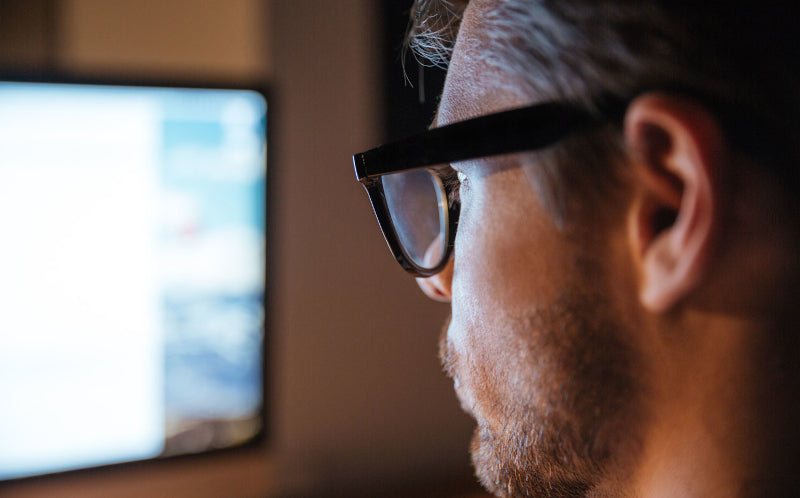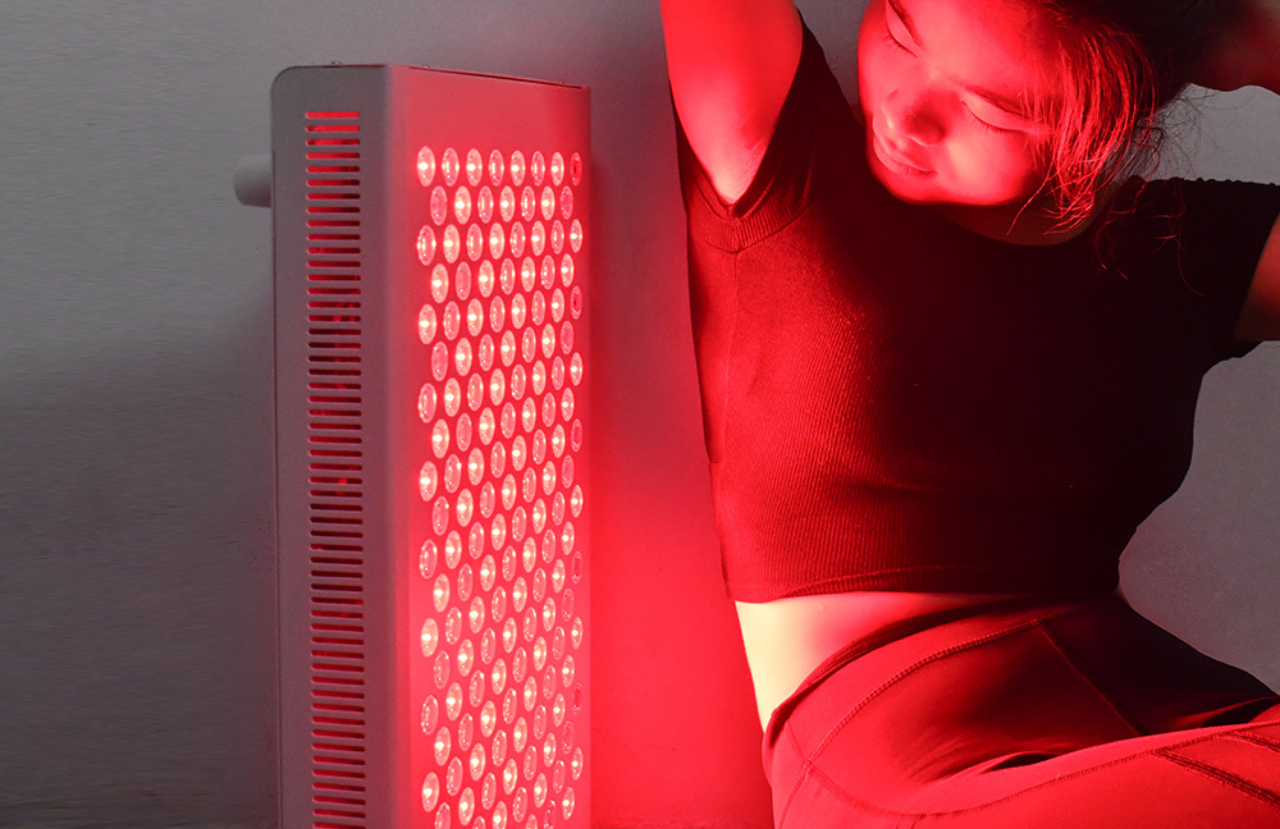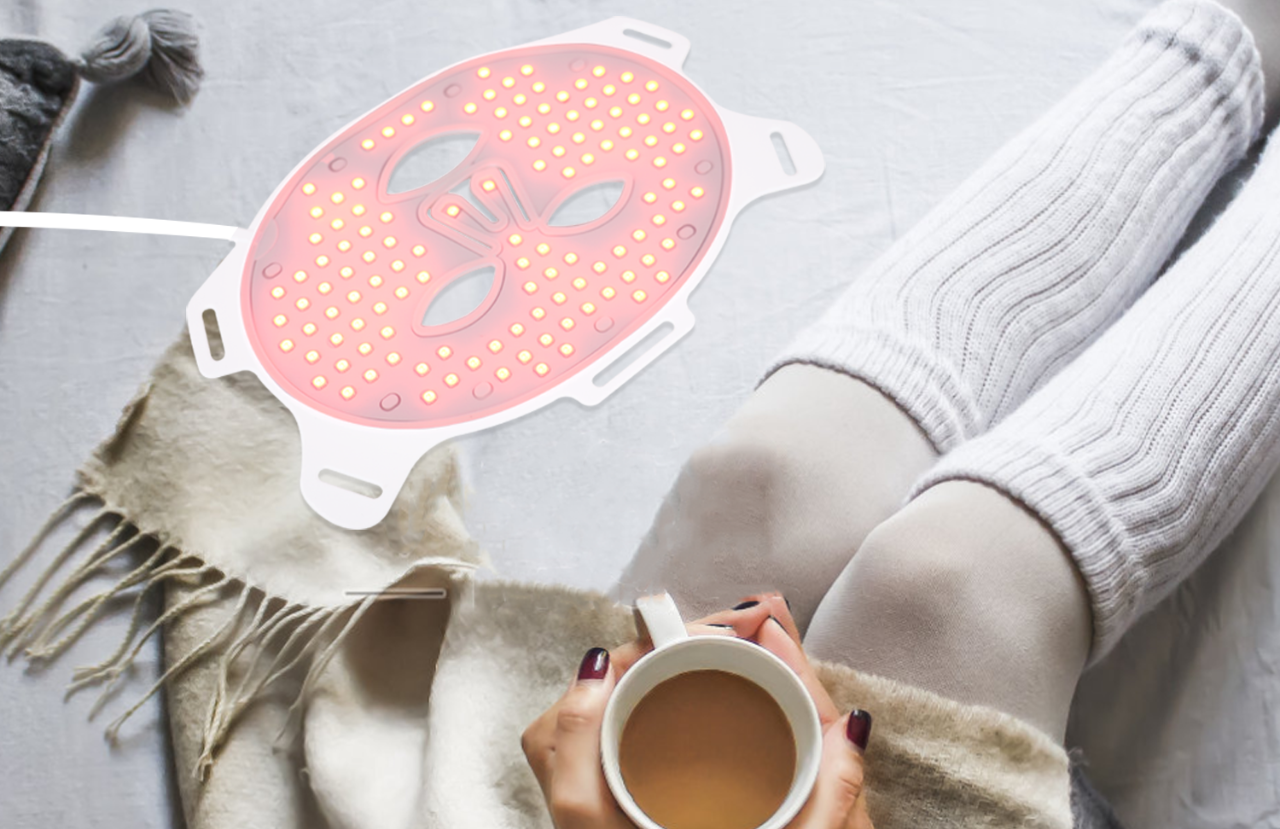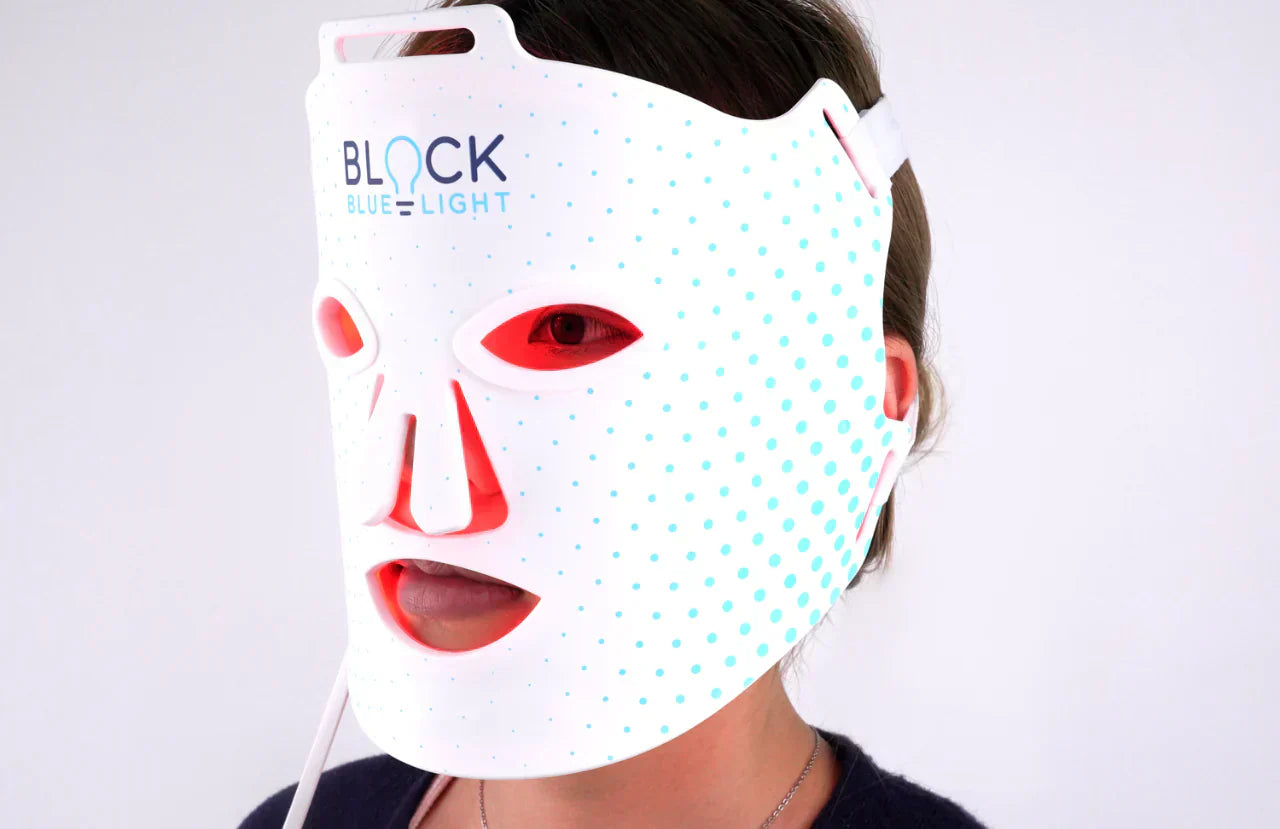Since the pandemic caused screentime to double, many of us took to wearing blue light glasses all day to protect ourselves from the effects of blue light, which included eye strain, disrupted sleep cycle and headaches. But becoming comfortable with blue light blockers has us wondering if it is bad to wear blue light glasses all day.
Does wearing blue light glasses all day have any adverse effects or is it perfectly fine to have them on all the time? (Who has time to put on and remove a pair of glasses all day, anyway!?) Let’s look at the science behind whether it is bad to wear blue light glasses all the time.
First of all, let’s understand what blue light glasses are and how blue light glasses work.Properly developed blue light glasses should filter out high-energy wavelengths of light which include blue and green light ranging 380nm - 550nm. This range of wavelengths has been proven by many studies to cause damage to eyes, increase stress levels, disrupt the circadian rhythm (sleep cycle) and cause headaches. Blue light is primarily emitted by computer screens, LEDs and fluorescent lights and electrical appliances.
If the blue light glasses have been created to align with research and science they should have specially crafted lenses that filter 50%-100% of the wavelengths in this spectrum, depending on which time of the day they are made for.
There are two types of blue light blocking glasses, and each filters blue light at a different intensities.
- Daytime blue-light glasses: These have clear lenses and filter anywhere from as little as 5% through to 50% of the spectrum of blue light (how much will depend on the brand and quality of the lens used). They are to be used primarily when indoors and being exposed to artificial light such being screens or working under LED or fluorescent lights. Research has shown that the peak wavelength of blue light emitted by devices and LED lights is 455nm. This is the high-energy wavelength primarily responsible for retina damage, eye strain, heahaches, migraines and other health problems. Our daytime blue light glasses contain a special pigment inside the lens to filter this exact damaging spike of 455nm by 50% making them a truly effective daytime set of blue light glasses.

- Nighttime blue-light glasses: Our night-time glasses are red-tinted and they block 100% of blue light and green light up to 550nm .Research published in Oxford Academic found that wavelengths from 400-550nm is responsible for suppression of melatonin, the sleep hormone. These glasses are to be worn after sunset, to prevent your sleep cycle from being disturbed and improve sleep quality.

The scientific benefits of wearing blue light glasses are undoubted, but the question still remains,
is it bad to wear blue light glasses all day?
For this, let’s understand what the effects of wearing blue light glasses are:
When you wear a pair of blue light glasses, the wavelengths of blue light can no longer signal and communicate with your brain.
Our eyes have special cells to detect blue light. These are present on the retina. Unlike rod and cone cells which help us see colour and see in the dark, there is a special kind of cells called ipRGCs (Intrinsically photosensitive retinal ganglion cells) which have no role in our vision. These cells detect blue light only. They were discovered by scientists in 2002 and they influence other functions of our visual system, such as the pupillary light reflex, sleep, cognition, mood, light aversion and development of the retina.
Effect of blue light glasses during the daytime:
During the daytime, blue light is present naturally in the environment, from sunlight. It is responsible for waking the brain up. ipRGC cells detect this light and signal to the brain that it is daytime. The brain promotes alertness and cognitive function and releases the hormone cortisol which is responsible for regulating the daytime functions of our body, such as regulating metabolism, increasing sugar in the bloodstream and helping memory formation.
However, increased exposure to artificial sources of blue light (such as screens and LED lights) has adverse effects and causes an increase in cortisol levels and damage to the eyes.
For daytime blue light glasses to actually be effective they need to filter 50% of the damaging wavelengths that are emitted by digital devices, to mimic a more natural environment.
If a pair of blue light glasses doesn’t target the full spectrum of blue light and dosnt filter it down by 50%, your eyes will be unprotected and you may still experience the symptoms you’re trying to escape. Many blue light glasses found online don’t target the full spectrum, and filter is little as only 5% of blue light, which is why some people claim that blue-light glasses didn’t help them.
It’s especially important that the daytime glasses filter the blue light spike at 455 nm which is emitted by digital devices. The purpose of daytime blue light glasses is to filter just the excessive blue light emitted by artificial light sources, while allowing enough to help us keep awake. Our blue light glasses do just this, as can be seen by the spectral test reports on our website.
Many of our customers who use daytime blue light glasses ask us the question;
is it bad to wear blue light glasses all the time?
Well, you won’t be at the risk of developing any eye diseases, but there is no need. Blue light from the sun regulates our normal body functions such as the sleep-wake cycle and digestive system, to name a few. So we don’t want to hinder the natural functioning of our body. When you step outside, it’s best to take them off. As long as you’re working inside, with LEDs and screens, wearing blue light glasses will be beneficial in protecting you from the harms of blue light.
Effect of blue light glasses after sunset:
Towards sunset and at night, sunlight is no longer present in the environment. In short, there’s no blue light stimulation to wake the brain up. The brain realizes that it’s time to wind down for bed and increases the production of melatonin, the sleep hormone. It also decreases alertness and cortisol levels. However, if you’re using screens or have your lights on in your home l, this natural process does not occur because the brain assumes it is still daylight. Thus the normal winding down process doesn’t happen.
Night-time blue light glasses mimic the conditions of nature by blocking 100% of blue and green light from 380nm to 550nm. These wavelengths of light are responsible for stimulation and telling our brain that it's daytime. Thus night-time blue light glasses help you fall asleep on time and improve sleep quality.
Clients, who wear our nighttime blue light glasses often ask us,
is it bad to wear night-time blue light glasses all day?
Night-time blue light glasses shouldn’t be used at all during the day. They’re crafted for use after sunset and using them during the daytime when we are naturally exposed to sunlight may cause sleepiness. Not to mention, the red tint in the lenses is not something you want all day!
Unless you’ve been prescribed red-tinted glasses due to any reason by your optician, such as eye sensitivity or migraines, This is why we don’t recommend you wear nighttime blue light glasses during the day.
The main concern is that blue light glasses are crafted to mimic natural light conditions and by using them incorrectly and going against nature, you won’t benefit from them.
That being said, did you know, blue light glasses aren’t the only way to protect your eyes from blue light? Our skin has receptors for blue light too. You can opt for blue light-free lamps and light bulbs if that works for you. Check out this article on the top blue-light products for 2021 and how to use them.
FAQs
Can you wear night-time blue light glasses during the day?
We don’t recommend that you wear night-time blue light glasses before sunset. These glasses have red-tinted lenses and block 100% of blue and green light up to 550nm. These are the exact wavelengths shown in academic research to suppress melatonin and send daytime signals to the brain. They do this to mimic the conditions of natural light after sunset and prepare the body for bed. Wearing them during the day is an akin to staying in a dark room, and may make you sleepy in the short run. Doing this in the long-run may lead to depressive symptoms. It results in a shift in your internal biological clock causing serotonin levels to drop. This is akin to what happens during SAD (Seasonal Affective Disorder).
As we said above, blue light from the sun during the daytime is needed to keep our circadian rhythm in check so we don’t recommend wearing night-time blue light glasses during the day.
Is it bad to wear daytime blue light glasses all the time?
As long as you’re working with screens or in artificial lighting, daytime blue light glasses will protect your eyes and health. If you’re out in the sun or not being exposed to any artificial light, however, there’s no need to wear blue light glasses. The sun’s light is beneficial in regulating our body’s natural systems, such as the sleep-wake cycle, body temperature and digestive system. Wearing blue light glasses out in the sun will hinder these natural processes.
Can you wear blue light glasses when outside?
Blue light glasses are created to protect our eyes from the damaging wavelengths of artificial light (380nm-550nm) which lies in the range of blue and green light. They are created to protect our eyes from screens and LED lights that release excessive amounts of this wavelength. Sunlight is beneficial for the body, to regulate our natural cycles. So there’s no benefit to wearing blue light glasses when outside.
References:
Cui, Q., Ren, C., Sollars, P., Pickard, G. and So, K., 2015. The injury-resistant ability of melanopsin-expressing intrinsically photosensitive retinal ganglion cells. Neuroscience, 284, pp.845-853.
Publishing, H., 2021. Blue light has a dark side - Harvard Health. [online] Harvard Health. Available at: <https://www.health.harvard.edu/staying-healthy/blue-light-has-a-dark-side> [Accessed 20 April 2021].
Kayumov, L., Casper, R. F., Hawa, R. J., Perelman, B., Chung, S. A., Sokalsky, S., & Shapiro, C. M. (2005). Blocking low-wavelength light prevents nocturnal melatonin suppression with no adverse effect on performance during simulated shift work. The Journal of Clinical Endocrinology & Metabolism, 90(5), 2755-2761. doi:10.1210/jc.2004-2062





